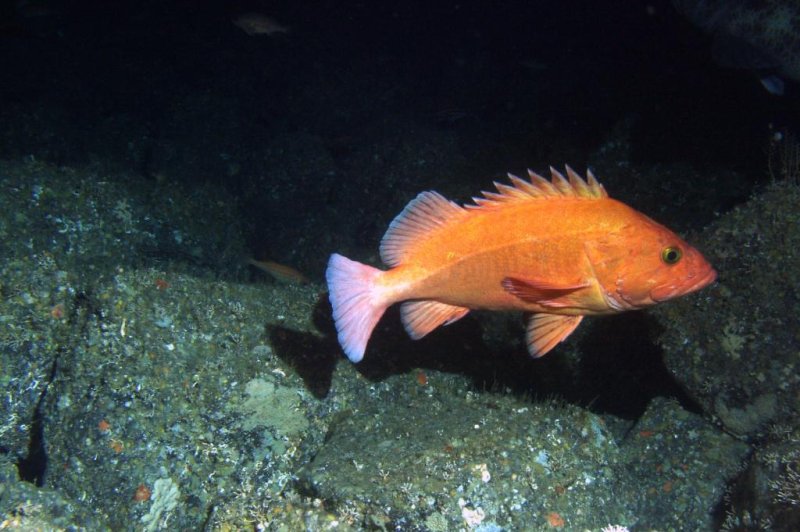A large, old yelloweye rockfish hangs out along the ocean floor. Some rockfish can life to be upwards of 200 years old. Photo by Victoria O'Connell/University of Washington
Sept. 14 (UPI) -- Catching an old fish has become an increasingly rare and difficult task in today's oceans. New research suggests fishing pressure around the globe has depleted stocks of older fish.
The findings -- detailed this week in the journal Current Biology -- are worrisome, as the longer fish live, the more chances they have to reproduce and replenish a species' stock.
"From our perspective, having a broad age structure provides more chances at getting that right combination of when and where to reproduce," Lewis Barnett, a postdoctoral researcher at the University of Washington, said in a news release.
Scientists analyzed the numbers of older fish among 63 populations across five ocean regions. They found older fish had suffered significant declines in a vast majority of the studied populations. For roughly a third of fish populating, declines among older fish measured a magnitude of more than 90 percent.
Previous research has highlighted the importance older and larger predators play in maintaining ecological balance.
Similarly, in forests, a healthy but relatively young forest doesn't not provide the same ecological stability and biodiversity that a healthy forest populated by young and old trees does.
"More age complexity among species can contribute to the overall stability of a community," Barnett said. "If you trim away that diversity, you're probably reducing the marine food web's ability to buffer against change."
Different species can have very different lifespans, as well as varying levels of reproductive difficulty. But all fish species could benefit from more time to reproduce.
"In the marine world, the success rate of producing new baby fish is extremely variable," said Trevor Branch, an associate professor of aquatic and fishery sciences. "I think of old fish as an insurance policy -- they get you through those periods of bad reproduction by consistently producing eggs."
Fish also often become bigger, more capable predators as they age, helping to control prey populations. They may also alter their behavior, and turn their attention to new types of prey. Removing them from an ecosystem and food web can have destabilizing consequences.
Researchers suggest policy makers and fisheries managers work to better protect both young and old fish by narrowing size targets and creating more marine preserves where older fish can avoid fishing pressure.















